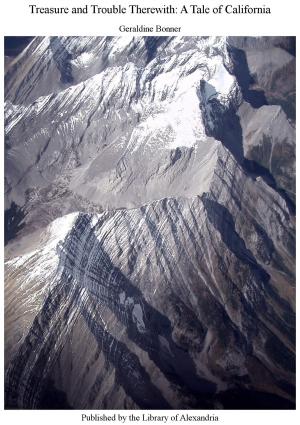| Author: | Sophonisba Preston Breckinridge | ISBN: | 9781465571854 |
| Publisher: | Library of Alexandria | Publication: | July 29, 2009 |
| Imprint: | Library of Alexandria | Language: | English |
| Author: | Sophonisba Preston Breckinridge |
| ISBN: | 9781465571854 |
| Publisher: | Library of Alexandria |
| Publication: | July 29, 2009 |
| Imprint: | Library of Alexandria |
| Language: | English |
OUTFIT AND SUPPLIES Rumor of gold in northeastern Asia—Plan to prospect through Kamchatka and north to Bering Strait—Steamer Cosmopolite—Russian law in the matter of liquor traffic—I make up my party and buy supplies—Korean habits of dress—Linguistic difficulties.When the rich deposits of gold were found on the Yukon River, and later in the beach sands of Cape Nome, the question naturally arose as to how far these deposits extended. Sensational reports in the papers, and the stories of valuable nuggets being picked up along the adjacent coast of Asia, fired the imagination of the Russians, who hoped, and perhaps not without reason, to repeat the marvelous successes which had been met with on the American side. The existence of valuable gold deposits in other parts of Siberia lent color to the belief that the gold-bearing belt extended across from America to Siberia, and that consequently the Asiatic shores of Bering Sea ought to be well worth prospecting. No people were ever more alive to the value of mineral deposits than the Russians, and none of them have been keener in the search for gold. As evidence of this we have but to point to the vast, inhospitable wilderness of northern Siberia, where gold has been exploited in widely separated districts and under conditions far more trying than those which have surrounded any similar undertaking, with the exception of the Klondike. I had left Chittabalbie, the headquarters of the Oriental Consolidated Mining Company,—an American firm that is successfully exploiting the gold deposits of northern Korea,—and being enamoured of a wandering life, I found myself one morning entering the magnificent harbor of Vladivostok, the eastern terminus of the Siberian Railway and the principal Russian distributing center on the Pacific coast. I believed that as the northeastern extremity of Asia was as yet virgin ground to the prospector, there would be no better opportunity for the practice of my profession than could be found in the town of Vladivostok. The surmise proved correct, and I was almost immediately engaged by a Russian firm to make an extended prospecting tour in Kamchatka, through the territory north of the Okhotsk Sea and along the shores of Bering Sea. This arrangement was made with the full cognizance and approval of the Russian authorities. I carried a United States passport. The Russians gave me another at Vladivostok, and through the Governor-general at that place I secured an open letter to all Russian magistrates in eastern Siberia, instructing them to give me whatever help I might need in the procuring of food, sledge-dogs, reindeer, guides, or anything else that I might require. Not only were no obstacles put in my way, but I was treated with the utmost courtesy by these officials, who seemed to realize the possible value of the undertaking
OUTFIT AND SUPPLIES Rumor of gold in northeastern Asia—Plan to prospect through Kamchatka and north to Bering Strait—Steamer Cosmopolite—Russian law in the matter of liquor traffic—I make up my party and buy supplies—Korean habits of dress—Linguistic difficulties.When the rich deposits of gold were found on the Yukon River, and later in the beach sands of Cape Nome, the question naturally arose as to how far these deposits extended. Sensational reports in the papers, and the stories of valuable nuggets being picked up along the adjacent coast of Asia, fired the imagination of the Russians, who hoped, and perhaps not without reason, to repeat the marvelous successes which had been met with on the American side. The existence of valuable gold deposits in other parts of Siberia lent color to the belief that the gold-bearing belt extended across from America to Siberia, and that consequently the Asiatic shores of Bering Sea ought to be well worth prospecting. No people were ever more alive to the value of mineral deposits than the Russians, and none of them have been keener in the search for gold. As evidence of this we have but to point to the vast, inhospitable wilderness of northern Siberia, where gold has been exploited in widely separated districts and under conditions far more trying than those which have surrounded any similar undertaking, with the exception of the Klondike. I had left Chittabalbie, the headquarters of the Oriental Consolidated Mining Company,—an American firm that is successfully exploiting the gold deposits of northern Korea,—and being enamoured of a wandering life, I found myself one morning entering the magnificent harbor of Vladivostok, the eastern terminus of the Siberian Railway and the principal Russian distributing center on the Pacific coast. I believed that as the northeastern extremity of Asia was as yet virgin ground to the prospector, there would be no better opportunity for the practice of my profession than could be found in the town of Vladivostok. The surmise proved correct, and I was almost immediately engaged by a Russian firm to make an extended prospecting tour in Kamchatka, through the territory north of the Okhotsk Sea and along the shores of Bering Sea. This arrangement was made with the full cognizance and approval of the Russian authorities. I carried a United States passport. The Russians gave me another at Vladivostok, and through the Governor-general at that place I secured an open letter to all Russian magistrates in eastern Siberia, instructing them to give me whatever help I might need in the procuring of food, sledge-dogs, reindeer, guides, or anything else that I might require. Not only were no obstacles put in my way, but I was treated with the utmost courtesy by these officials, who seemed to realize the possible value of the undertaking















